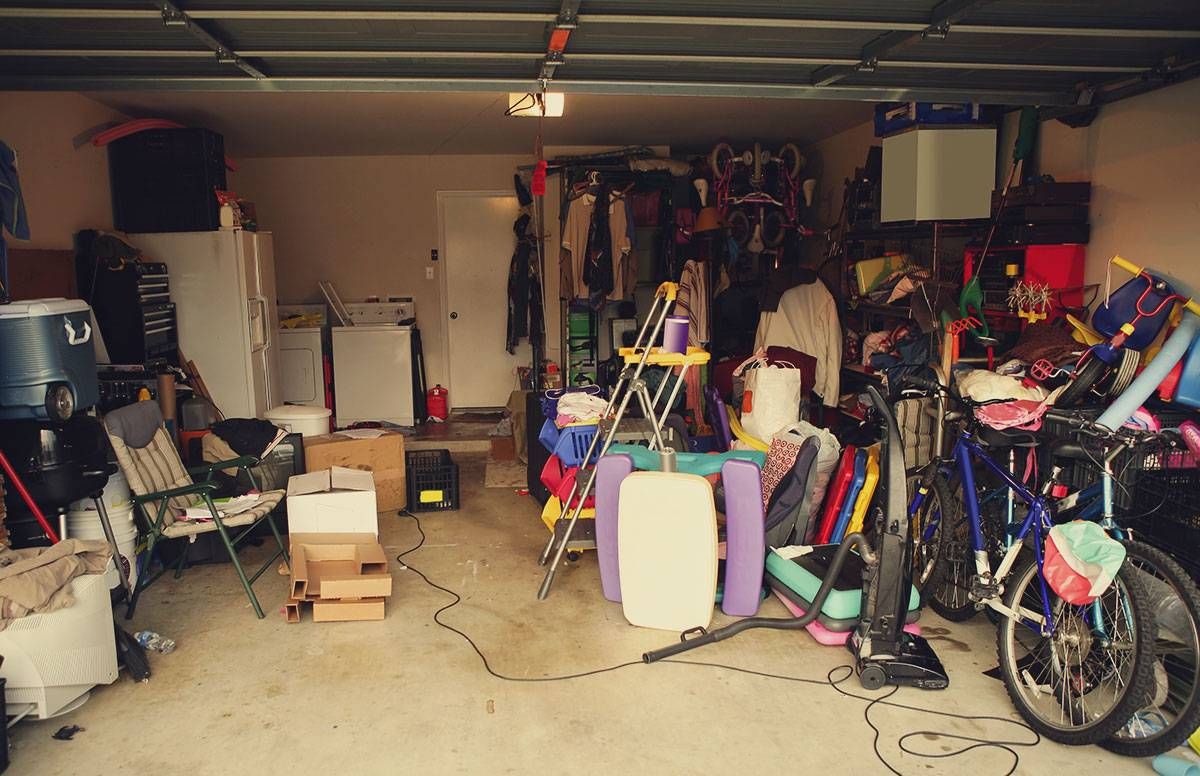Downsizing — The First Step in Your Retirement Journey
The benefits of trading down and where to do this

(Editor’s note: This content is sponsored by Acts Retirement-Life Communities.)
Retirement is a time we all look forward to reaching. No more punching a clock day-in and day-out, plenty of time to spend pursuing hobbies and interests, opportunities to explore nature — on many different levels, retirement is finally our chance to live the dream.
Of course, it can be hard to enjoy your retirement properly if you’re weighed down by baggage from your working life. In fact, your biggest liability might be the very place you lay your head each night. That’s precisely why so many retirees choose to downsize their living arrangements, in order to make more room for themselves in their new life. Here’s why downsizing is often the first step in your journey through retirement.
Bigger Isn't Always Better
Let’s be honest. A big, rambling house might have been just the thing while you were working and perhaps raising a family, but once the kids have grown and have started families of their own, that empty nest of yours can feel unnecessarily cavernous. Suddenly you’ve got more space than you know what to do with it (and more importantly, that you have to clean and maintain). Spending time and energy dusting, sweeping, vacuuming, mopping, mowing the lawn, raking leaves, power washing the siding, working on repairs and otherwise maintaining a large home for just you and your spouse, or partner is flat out exhausting.
And then there’s the financial strain a big house can cause. Property taxes, utility bills, landscaping fees if you understandably don’t want to do all that lawn care yourself — these are all obviously much higher with a large home than with a smaller one. Such expenses can be a drain on your retirement income, possibly resulting in truncating your ability to enjoy your retirement otherwise by reducing the amount of available funds you have that would have otherwise gone to spending money on things you want to do instead of things you have to do. Is it any wonder how many retirees decide that it’s time to free up that income with more modest and affordable housing?
Click here to read the article Can I Afford Retirement?
Downsizing Just Makes Good Financial Sense
Downsizing is one of the best ways to make your retirement more affordable. Trading in a home that’s too big and for one that’s smaller, more compact and has less overhead means more money in your pocket at the end of the day. Whether it’s a smaller home like a cottage, a semi-detached dwelling or an apartment, the cost to live in one of these downsized homes is going to be a fraction of what you’re likely to be paying now.
Click here to read the article 5 Tips for Staying Sane When Downsizing Your Home for Retirement
Downsizing is also a great investment because you can often finance a move with the equity you hold on your existing property. Even if you are still carrying a balance on your mortgage, a home sale will still likely leave you with plenty of cash in hand that you can then put towards a new living situation. You can pay cash outright and bank the remainder to add to that retirement nest egg of yours, allowing you to match or even exceed your pre-retirement standard of living more easily.
The Best Downsizing Opportunities: Retirement Communities
Unsure of where to even start when it comes to looking for a downsized domicile to spend your retirement? You can certainly enter the real estate market like you did when you bought your current home, but for maximum value and for maximum retirement life enjoyment, we recommend looking into a retirement community. These communities are often indistinguishable from other planned or gated communities in that they offer a great deal of wonderful amenities and conveniences, with the only major difference being that membership is often reserved for retirement-age residents.
Retirement communities are ideal for a number of reasons. One is that many retirement communities provide services like maintenance, landscaping and trash removal as part of the package for an affordable monthly price. This membership fee often also provides access to on-site entertainment amenities like swimming pools, clubhouses, hair salons, dining opportunities, classes and hobbies, excursions, and many others (recognizing some of the amenities may be temporarily closed or off limits due to the pandemic). Combine this with retirement communities that can provide services like medical assistance and you’ve got a winning combination that will help you stretch your retirement funds farther than ever.
Click here to read the article What is the Average Cost of a Senior Independent Living Community?
Alternatives to Retirement Communities
There are of course other ways to downsize your living arrangements. Buying a smaller home in a traditional neighborhood, investing in an apartment or even moving in with family are all valid decisions that may fit your particular circumstances better than a retirement community. It all depends on your specific needs and desires.
For particularly adventurous and independent retirees, you can use the money from your home sale to purchase an RV and spend your time traveling across the country, seeing the sights.
Click here to read the article Does a CCRC Make Sense for You?
The Sky's the Limit
Once you’ve downsized your living arrangements, a world of possibilities becomes available to you. No more unnecessary expenses and maintenance responsibilities means you can visit family, invest in a new hobby or pastime or anything else you feel like doing.
Looking for more ideas about how to stretch your retirement budget through downsizing or any other great investment strategies? Consult a qualified retirement savings adviser today. It’s never too late to start preparing for the future you want to have during your retirement years.
For more information on retirement, read these articles by Acts Retirement-Life Communities:
- Should I Sell My House During a Recession?
- Retirement Myths vs. Reality: What You Need to Know
- How Much Do I Need to Retire?

Acts Retirement-Life Communities is the largest not-for-profit owner, operator and developer of continuing care retirement communities in the United States. Headquartered in suburban Philadelphia, Acts has a family of 23 retirement communities that serve approximately 8,500 residents and employ 6,200 in Pennsylvania, Delaware, Maryland, North and South Carolina, Georgia, Alabama and Florida. For more information about Acts visit actsretirement.org.

